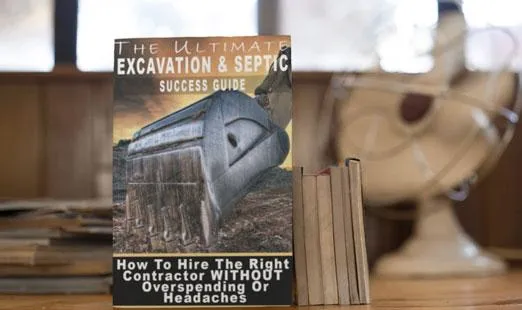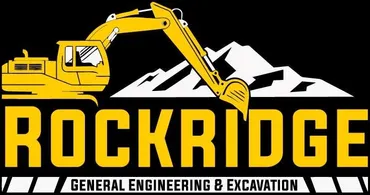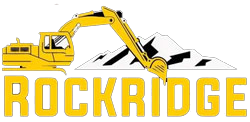YOUR #1 FULL SITE PREP EXPERTS!
CALL NOW- 360-564-5933
Licensed: ROCKRGE816DF - Over 35 Years of Experience | Emergency Services Available | Family and Locally Owned

Best Leach Field Solutions for Castle Rock Homes: Pros & Cons Explained
Finding the Best Leach Field Solution for Your Castle Rock Home—The Pros and Cons
Introduction: Why Your Castle Rock Home Needs the Right Leach Field Solution
Your Castle Rock home is more than just a structure—it’s where you live, grow, and make memories. But when your leach field isn't functioning right, it can quickly become a nightmare. Maybe you’ve noticed soggy patches in the yard or a foul smell that lingers after a rain. Perhaps you’re facing the reality of replacing an aging system or considering options for a new installation. It’s frustrating, isn’t it?
At Rockridge General Engineering & Excavation, we get it. We’ve been in the trenches (literally) with homeowners in Castle Rock and nearby areas, understanding not just the technical aspects but the genuine stress these situations cause. We know that a leach field problem isn’t just about plumbing; it’s about peace of mind. That’s why we’re obsessed with tailoring solutions to your specific needs—because no two homes or families are the same.
Let's break down the options, pros, and cons, so you can make the best decision for your Castle Rock property.
What Is a Leach Field? The Basics You Need to Know
Before diving into the different types, it’s important to understand what a leach field actually does. The leach field is a crucial component of your septic system. After wastewater flows through your septic tank, it moves into the leach field, where it’s further treated and filtered into the soil. It’s the last step in making sure harmful bacteria and contaminants don’t end up in your groundwater.
So, when the leach field isn’t doing its job properly, it can lead to backups, foul smells, and potential contamination of local water sources—a serious concern, especially in Castle Rock’s rural and suburban areas where well water is common.
Types of Leach Fields: Exploring Your Options
When it comes to selecting the right leach field system, there are several options, each with its own benefits and challenges. Here's a closer look:
Traditional Leach Fields
The most common system, with perforated pipes that distribute wastewater into the soil through gravel-lined trenches.Chamber Leach Fields
Instead of gravel, these use large, open chambers that create more surface area for water absorption and are less prone to clogging.Drip Distribution Systems
Involves a network of small, flexible tubing placed in shallow trenches, delivering effluent more evenly across the soil.Mound Systems
Used where soil conditions aren’t ideal, this option involves constructing an above-ground mound to house the leach field components.
Pros and Cons of Each Leach Field Type
Each type of leach field has its strengths and weaknesses. Here’s what you need to consider:
Traditional Leach Fields: Pros & Cons
Pros: Cost-effective, proven technology, easy to install and maintain.
Cons: Requires large amounts of space, limited adaptability to rocky or clay-heavy soil, potential for trench clogging.
Chamber Leach Fields: Pros & Cons
Pros: Great for areas with less suitable soil, better adaptability, less material needed.
Cons: Higher upfront cost, some local codes may restrict usage, more complex to install.
Drip Distribution Systems: Pros & Cons
Pros: Works well in diverse soil types, allows for shallow installation, even wastewater distribution.
Cons: Expensive installation, needs regular maintenance, potential clogging of small lines.
Mound Systems: Pros & Cons
Pros: Ideal for high water table areas, less risk of groundwater contamination, customizable design.
Cons: Visually noticeable, high cost, requires professional design and installation.
How to Choose the Best Leach Field for Your Castle Rock Property
Selecting the right leach field is not just about budget—it’s about your land’s unique characteristics. Here’s what to think about:
Soil Type Considerations: Sandy soils absorb well, while clay-heavy soils may require a more advanced system like a mound or drip distribution.
Water Table Levels: If your water table is high, consider a mound system to prevent contamination risks.
Property Size & Layout: Smaller properties might benefit from drip systems, which require less space, while larger lots can accommodate traditional systems.
Local Regulations & Permits: Castle Rock and Cowlitz County have specific requirements for septic systems. Make sure your choice aligns with local codes.
Signs Your Current Leach Field May Be Failing
No one wants to deal with a failing leach field, but being proactive can save you a lot of headaches. Watch for these signs:
Soggy patches or standing water in the drain field area
Slow drains inside your home
Foul odors near the leach field or septic tank area
Unusually lush grass over the leach field, signaling excess moisture
If you’re seeing any of these signs, don’t delay in calling a professional.
What to Expect During a Leach Field Installation
If you need a new leach field, here’s a rundown of what the process looks like:
Pre-Installation Preparation: Initial soil testing, permits, and planning based on your property’s characteristics.
Installation Steps: This includes digging trenches, installing pipes or chambers, and backfilling. A traditional system might take a few days, while more complex systems could take longer.
How Long It Takes: Depending on the system type and complexity, it could take anywhere from 1 to 2 weeks, weather permitting.
Maintaining Your Leach Field for Longevity
Regular maintenance is key to keeping your leach field healthy. Here’s how:
Regular Inspections: Have a professional check the system every 1-3 years.
Watch What You Flush: Avoid flushing grease, non-biodegradable items, or excessive cleaning chemicals.
Divert Surface Water: Make sure rainwater doesn’t run over the leach field, as this can saturate the soil.
Why Rockridge General Engineering & Excavation Cares About Your Leach Field Solution
At Rockridge, we believe the best solutions are the ones designed specifically for you. We don’t just install systems; we build them to work seamlessly with your lifestyle and property. Our team has years of experience across Thurston, Lewis, and Cowlitz Counties, and we bring that expertise to each project with a personal touch.
Conclusion: Finding the Best Leach Field Solution for Your Castle Rock Home
Choosing the right leach field solution can be daunting, but it doesn’t have to be. By understanding your options, knowing the pros and cons, and taking a thoughtful approach to selection, you can make an informed decision that keeps your home safe and your stress levels low. At Rockridge, we’re here to help make that process easier.

AVOID COSTLY MISTAKES:
Do NOT hire an excavating contractor without first reading our free guide:
The ULTIMATE Excavation & Septic "Success Guide."

We Offer Excavation Services You!
If you don't see your specific area contact us and we may still be able to help or give a referral.
All rights reserved | Privacy policy | Client Support Area | Terms & Conditions | Privacy policy





